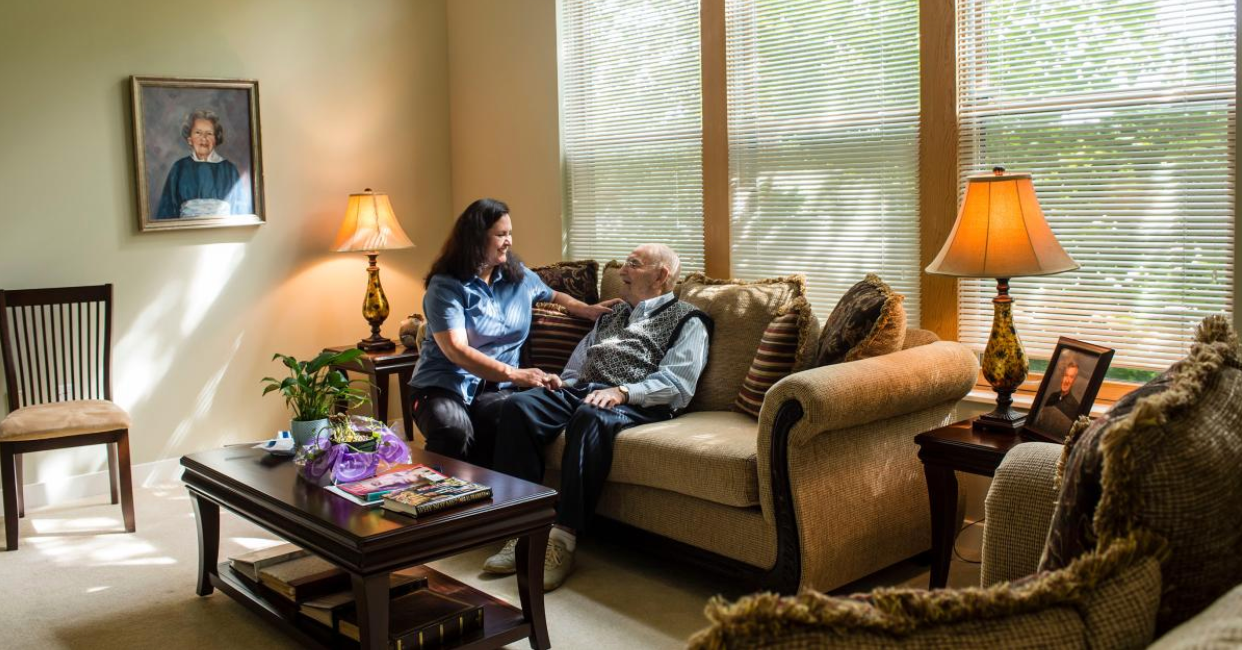Navigating the Road to Recovery: Returning Home from the Hospital
What should you be thinking about prior to returning home from a hospital stay?
Returning home from the hospital is a significant turning point in an individual's life. It marks the beginning of the recovery journey after a medical procedure, illness, or injury. At 7 Day Home Care, we understand the importance of this transition, and we're here to guide you through it. We provide post-acute in-home care in Manhattan, Queens, Brooklyn, Nassau County, and Suffolk County, New York, ensuring that you receive the support you need during this critical phase.
This article will explore nearly every aspect of returning home from the hospital, from the importance of a well-prepared home to the management of medications, emotional well-being, and much more.
- Understanding the Importance of a Well-Prepared Home
Returning home from the hospital isn't just about stepping through your front door; it's about stepping into an environment that promotes healing. According to the National Institute on Aging, a well-prepared home reduces the risk of falls and accidents, which can be especially crucial for older adults.
2. Arranging Necessary Medical Equipment
The availability of essential medical equipment and supplies at home can significantly impact your recovery process. A study published in the Journal of Hospital Medicine found that patients with readily available medical equipment experienced shorter hospital readmission rates.
3. Adapting Your Living Space
Statistics from the Centers for Disease Control and Prevention (CDC) highlight that over 95% of hip fractures among older adults result from falls, often within the home. Modifying your living space to reduce fall risks can lower this statistic considerably.
4. Seeking Assistance from Caregivers
The support of caregivers during the post-hospitalization period cannot be underestimated. Research from the National Alliance for Caregiving shows that caregiver assistance contributes to improved patient outcomes and a reduced risk of rehospitalization.
5. Creating a Detailed Care Plan
Collaborating with healthcare professionals to develop a comprehensive care plan is essential. The Agency for Healthcare Research and Quality (AHRQ) emphasizes that structured care plans lead to better patient outcomes and adherence to prescribed treatments.
6. Managing Medications Effectively
Medication management is a critical aspect of post-hospital care. According to a report by the American Pharmacists Association, medication errors are a significant concern, emphasizing the importance of proper medication management.
7. Monitoring and Addressing Wound Care
Wound care is vital for patients with surgical wounds or injuries. The Wound Healing Society reports that vigilant wound care reduces the risk of infection and promotes faster healing.
8. Maintaining a Balanced Diet
Nutrition plays a pivotal role in the recovery process. A study published in the Journal of Parenteral and Enteral Nutrition found that adequate nutrition reduces complications and shortens hospital stays.
9. Staying Hydrated and Active
Staying hydrated and engaging in light activities as recommended by your doctor can be essential for maintaining mobility and preventing complications. A study in the American Journal of Medicine emphasizes the importance of hydration in post-hospital care.
10. Recognizing Warning Signs
Awareness of warning signs is crucial to identifying potential complications early. The Mayo Clinic reports that recognizing and addressing warning signs can prevent adverse outcomes.
11. Managing Emotional Well-being
Returning home from the hospital can evoke a range of emotions. Research from the American Psychological Association highlights that emotional support is essential for mental well-being during recovery.
12. Resuming Daily Activities Gradually
Gradually resuming daily activities is key to avoiding overexertion and setbacks. The American College of Sports Medicine recommends a structured approach to post-hospital physical activity.
13. Attending Follow-up Appointments
Follow-up appointments with healthcare providers are vital for monitoring progress. The Journal of General Internal Medicine reports that regular follow-ups reduce the risk of readmission.
14. Making Home Safety a Priority
Prioritizing home safety can prevent falls and accidents. According to the National Safety Council, proper lighting, clear pathways, and grab bars can significantly reduce home accidents.
15. Connecting with Support Groups
Support groups provide emotional and practical guidance during the recovery journey. The Journal of Psychosocial Nursing and Mental Health Services emphasizes the benefits of peer support in post-hospital care.
16. Addressing Medication Management
For those on multiple medications, organized management is critical. A study in the Journal of Managed Care Pharmacy found that medication management tools lead to better adherence.
17. Promoting Social Interaction
Maintaining social connections can combat isolation and boost recovery. Research in the Journal of Health and Social Behavior shows that social interaction positively impacts health outcomes.
18. Planning for Transportation
Efficient transportation planning ensures access to medical appointments and services. The Journal of Transport & Health discusses the importance of accessible transportation for post-hospital care.
19. Adhering to Special Instructions
Following special instructions from healthcare providers is crucial. The American Journal of Nursing highlights the significance of adherence to dietary restrictions and wound care techniques.
20. Dealing with Unexpected Challenges
Despite thorough preparation, unforeseen challenges may arise. The New England Journal of Medicine stresses the need for adaptability and seeking assistance when needed.
21. Celebrating Milestones and Progress
Acknowledging and celebrating achievements can boost motivation. A study in the Journal of Behavioral Medicine discusses the positive impact of milestone celebrations on overall well-being.
22. Considering Home Care Services
Professional home care services can provide skilled assistance and support at home. The Journal of the American Geriatrics Society discusses the benefits of home care services for older adults.
23. Navigating Insurance and Finances
Understanding insurance coverage and financial responsibilities is essential. Research from the National Conference of State Legislatures provides insights into navigating healthcare costs.
24. Embracing a Positive Mindset
Maintaining a positive attitude is linked to better healing. Psychosomatic Medicine highlights the influence of a hopeful mindset on recovery outcomes.
Returning home from the hospital is a significant step towards recovery, and at 7 Day Home Care, we are committed to making this transition as smooth as possible. By following this comprehensive guide, and making a checklist, you'll be well-equipped to navigate the challenges and triumphs of your post-hospital journey. Remember, every small effort contributes to your overall well-being. We are here to support you every step of the way.
For additional resources and personalized care plans, please don't hesitate to contact 7 Day Home Care. Your journey to recovery starts here.
Brian Callahan
7 Day Home Care










